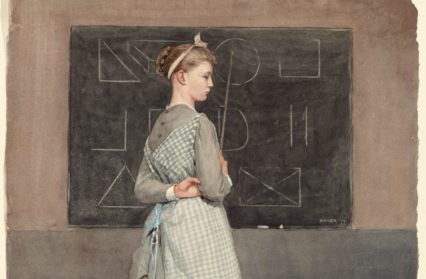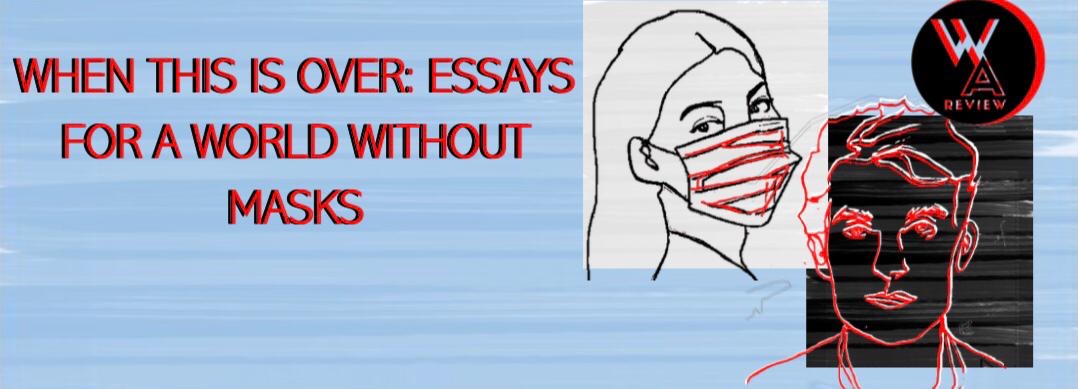
Wales Arts Review asked some of Wales’s top writers to pen some thoughts on the future. This new series brings together a wide variety of perspectives and ideas in a vibrant array of styles and forms, expressing hopes for a new way of doing things when the Covid-19 coronavirus is finally overcome. Political, personal, sociological, ecological, cultural – this is an evolving tableau of ideas. Here poet and teacher Glyn Edwards suggests a future world that has re-imagined the endless possibilities for how we educated our children.
Empty schools are like empty cities.
It’s difficult to stand inside one without being struck by the absence of people, or the void of noise.
Today, the car park was so prodigiously empty that I struggled to decide where to leave the car. The school doors slid open still but the lights were off in the reception area, the glass windows had been sealed, the internal doors double locked. Walking through the main corridor – at what would have been breaktime – was akin to wandering down a dual- carriageway in the early morning hours: a curious and disarming feeling where all apparent safety was belied by elusive, delicate threats both simultaneously contrived and unrelenting.

I opened my classroom with my elbow and forearm. The room was immaculately clean to the eye and the chairs eager under desks, though I was careful to slide the doorstop into use to avoid touching handles on my exit. The plants leant prostrate against the windows, two posters were peeling themselves from the wall, books remained in their precarious piles on the shelves. Last month’s date was still on the board – it was a Friday too.
Schools are like cities in how familiar they are. And now we begin to realise how we have taken the everyday for granted for so long.
Although there appears a growing discontent in how ‘normal’ had been so long aligned with GDP gains, there remains a greater clamour to return to it. But, when cities finally return to their ‘regular’ setting, I hope they do so with the crucial onus on community wellbeing over commercialism. I hope that a dynamic response to saving the natural world has been factored into any ‘recovery’, so that the acute crisis of Covid-19 does not eclipse the imminent cataclysm caused by climate neglect.
When the classroom returns to ‘regular’ use, however long that takes, I hope teaching is similarly transformed. Education requires a cultural transformation, fostered with well-being and learning, rather than data or examination results, at its core. There must be greater opportunities to learn and play music, to discover more about other languages and cultures, to paint and draw, to perform plays in the manner they were written, to study a diverse range of books, to stimulate literacy through creative writing, to read, to read, to read.
Schools could inspire young adults that are ultimately awarded certification based upon their efforts rather than their capacity to retain information; pupils could be supported to pursue their interests further in a broader curriculum of courses, and across local establishments that share resources; institutions could be supported by local and national industry, and by local and national government in order that they complement rather than compete with each other.
So, where to begin? I propose a single change to enact such a grand scheme: schools must be empowered to extend into their communities again. In an age of mass connectedness, we seem most-desperately in need of human interaction. Perhaps our need to communicate could be allied with nursing homes initially, where the country’s most-vulnerable, most-undervalued, most-isolated individuals crave someone to talk to them, to hear them.
In recent weeks, we have all had a lucid insight into a far lonelier world. But, curiously, it is a world where we exercise more, listen to and play more music, draw or paint more, and initiate more conversations with friends, family members and colleagues; it is a world where we now recognise simple, benevolent acts as transformative to our mental health.
If Coronavirus can leave behind any positive legacy, it may be the opportunity to redesign our cities and our schools around our acute need for positive encounters with the arts, with nature and with one another.
Glyn Edwards has been described as ‘one of Wales’ most exciting new voices’. His first collection Vertebrae was published by the Lonely Press. He has co-edited ‘Cheval’, the annual Parthian anthology of the Terry Hetherington Award for Welsh young writers, and been Guest Poetry Editor for the Lonely Crowd. He has been the poet in residence at the Chester Literature Festival and the Dylan Thomas’ Boathouse, and has had writing published by Verve Press, The Guardian and Poetry Wales. He has an MA in Creative Writing from MMU and works as a teacher in North Wales.
